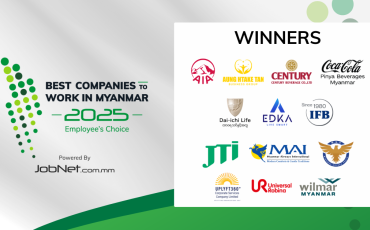
As the number of Novel Coronavirus (Covid-19) cases keep growing across China and abroad, we all receive different information and recommendations, creating confusion among business community and putting company executives into a difficult position to take the right decision that will protect their employees.
With this rapidly evolving Covid-19 pandemic situation, access to accurate and timely information as well as appropriate monitoring tools are essential to proactively communicate with your people and reduce the risks of contamination which could impact your workforce and business continuity.
However, this situation is also a wakeup call to remind us about the importance of risks management policies and processes for all businesses operating in Myanmar, whatever the size and sector, making sure they have their own pandemic escalation plan to take quick and appropriate action that protect their workforce and operations.
An escalation plan includes all the actions that need to be taken by the management and employees when a situation evolves in a way that may impact your people health and safety as well as your business operations. A typical pandemic escalation plan would include health screening for employees, visitors and 3rd party vendors as well as revised travel and meeting guidelines. Such measures are obviously more complex to implement for businesses working with large crowds (i.e. hotels, malls, healthcare facilities) while, in the meantime, they are the most exposed to contamination.
At International SOS Clinic and offices, we set-up health screenings to make sure our visitors are properly screened and avoid contamination to other patients and employees. We also differed all non-essential travels such as company gatherings and participation to conferences, and particularly trips to mainland China.
There is no standard escalation plan as it needs to be adapted to your organisation structure, size, locations and operations. However, a typical escalation plan includes 5 levels as follow:
- Preparatory: Business activity continues as normal, and organisations should regularly verify their risks management procedures and escalation planning.
- Warning: Organisations should ensure that evacuation plans are up-to-date, tested and ready to be implemented under short notice. Staff should receive specific communication to act accordingly to their risk exposure.
- Standby: An evacuation may be required imminently, and evacuation arrangements should begin for both foreign and local staff
- Evacuate non-essential staff: Organisation starts evacuating non-essential staff and their families, as per their predefined procedures and prepare for potential full evacuation.
- Full evacuation: When companies face extreme risks to their staff and assets.
It is important to remember that a robust pandemic escalation plan is your survival guide to business continuity and employees’ protection.
At International SOS, we have more than 30 years of expertise to deliver travel risk management and medical solutions to our clients around the world. In this specific pandemic time, our services include access to accurate and timely information on 2019-nCoV; medical expertise to review, validate and implement plans and procedures; on-going incident monitoring system and, whenever necessary, the presence of Senior medical advisor to make sure you are well prepared.
For the latest information on the Novel Coronavirus pandemic please visit https://internationalsos.com/coronavirus



